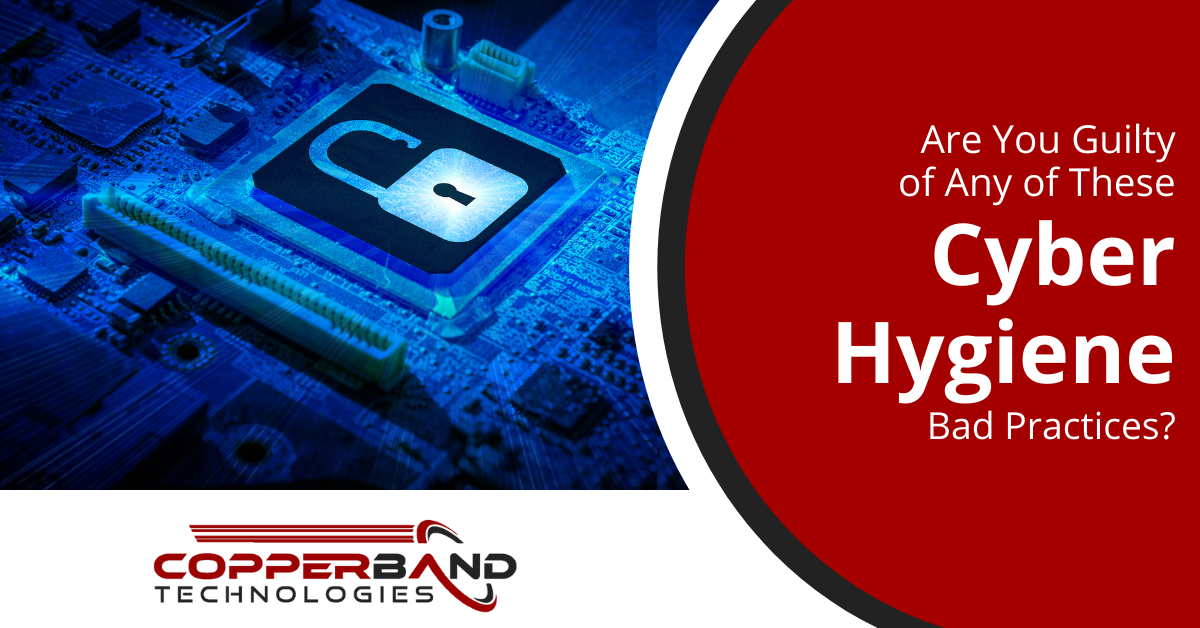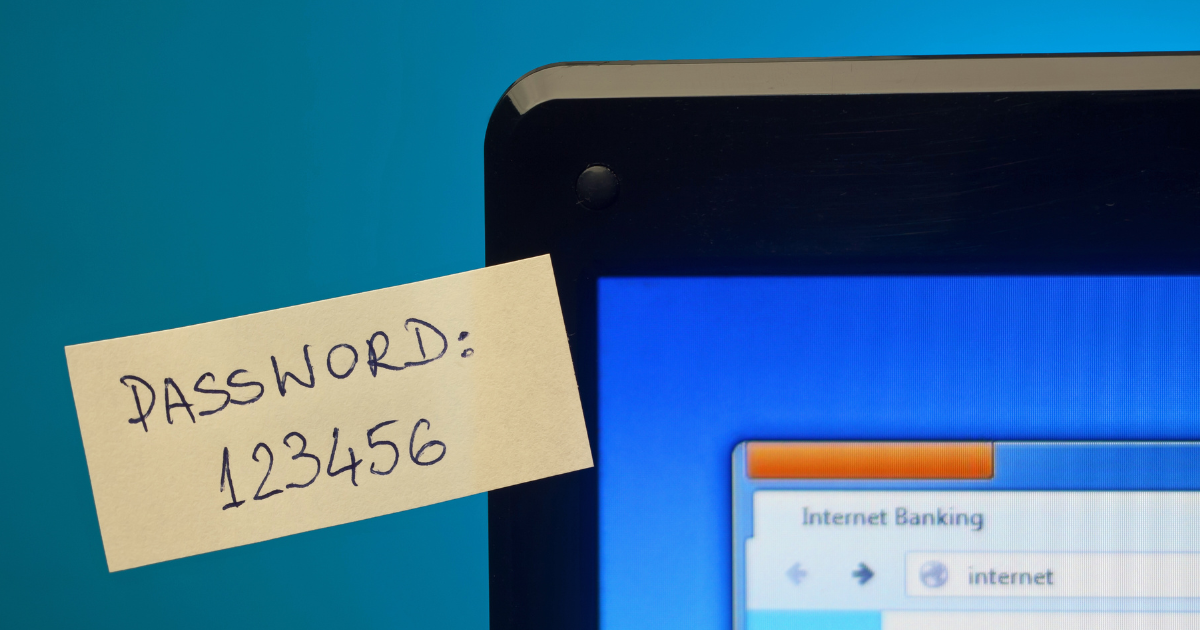Are You Guilty of Any of These Cyber Hygiene Bad Practices?

Believe it or not, most of today’s data breaches aren’t the result of complex undertakings by nefarious cyber-criminals. Instead, they result from simple mistakes – on the company’s part – that could have been avoided. In fact, IBM estimates that human error causes about 95% of security breaches today. This isn’t to say that hackers don’t have a role in data breaches. It’s just that businesses often give them a foothold.
Think of your data as precious jewels protected by a tall, locked iron gate. In theory, it’s hard for cybercriminals to get to these jewels. But, if one of your employees leaves the gate unlocked, it makes stealing data much more straightforward. Thankfully, just as there are bad cyber hygiene practices, there are also good ones. With a bit of work and re-education, you can help your employees keep data safe and reduce your chances of ending up in a data breach. So, what are the bad habits you need to avoid? Let’s take a look.
Presuming You’re Not a Target
Many small business owners make the mistake of thinking that cybercriminals aren’t interested in them. They presume that hackers only want to target multi-national corporations, but this isn’t true. Every company is susceptible to security incidents. Research indicates that 43% of cyberattacks are aimed at small businesses. Worse still, these incidents cost an average of $200,000, which could put some companies out of business. If you make the mistake of thinking you’re not a target, then you’re more likely to suffer a devastating breach. This is because you’re unlikely to have invested in the solutions and procedures to defend against and mitigate a cyberattack.
The bottom line here is to start taking security seriously. Just think of the damage a data breach could do to your operations and reputation. A ransomware attack, for example, could take your company offline for weeks, and the cost of a compliance fine could severely hurt the bottom line. It can be challenging to know where to get started with cybersecurity but burying your head in the sand simply isn’t an option. If you’d like assistance, speak with our security experts, who will be happy to help you improve your cybersecurity posture.
Letting Employees Fend for Themselves
Human error is to blame for many of today’s breaches. To combat this issue, you need to give your employees the knowledge and insights to reduce cyber risk. Common threat vectors today include social engineering attacks and credentials compromise. Social engineering attacks occur when a hacker sends out an email pretending to be a credible source. The email will encourage the user to click on a malicious link or attachment. Credentials compromise happens when cybercriminals get their hands on employee login details, including their email and password.
Once into their account, they can steal corporate data, email other colleagues to dupe them, and even launch malware. Your employees aren’t cybersecurity experts. If you want them to spot phishing attacks and change their passwords regularly, you will need to educate them. This is where training becomes pivotal. There are many ways to conduct cybersecurity training: eLearning courses, lunch and learn sessions, and so forth. Bear in mind, too, that you shouldn’t treat training as a tick-box exercise. It needs to be informative, engaging, and truly help your employees learn.
Relying on Antivirus Alone
Antivirus is a crucial part of effective cybersecurity, but it’s not a complete solution in itself – especially as attacks are becoming more advanced. You see, antivirus only defends against a particular type of cyberattack. There are many more tactics that criminals can use – such as injections and denial-of-service attacks – that compromise the network and your data without the need for a virus. As well as this, attackers can often execute new forms of malware at an alarming rate. This means that antivirus technology won’t always catch newer malware variants. Because of this, we advise that you take a holistic approach to security defense.
While antivirus is an important element of cybersecurity, it doesn’t stop every threat out there – especially not persistent and advanced attacks. Moreover, attackers today often evolve their tactics quicker than security companies can keep up. This means that, even with antivirus in place, some malware attacks could still slip through the net. To better protect your organization, we advise you to take an end-to-end approach to security. This begins with assessing your policies and infrastructure and then applying the right solutions and procedures to give you holistic protection.
When Did You Last Have a Cybersecurity Audit?
Copperband Technologies can conduct a full cybersecurity audit for your Southern Kentucky or Middle Tennessee business to identify any areas of vulnerability in your security protections and suggest solutions. Contact us today to schedule a consultation! Call 931.263.8000 or reach us online.






